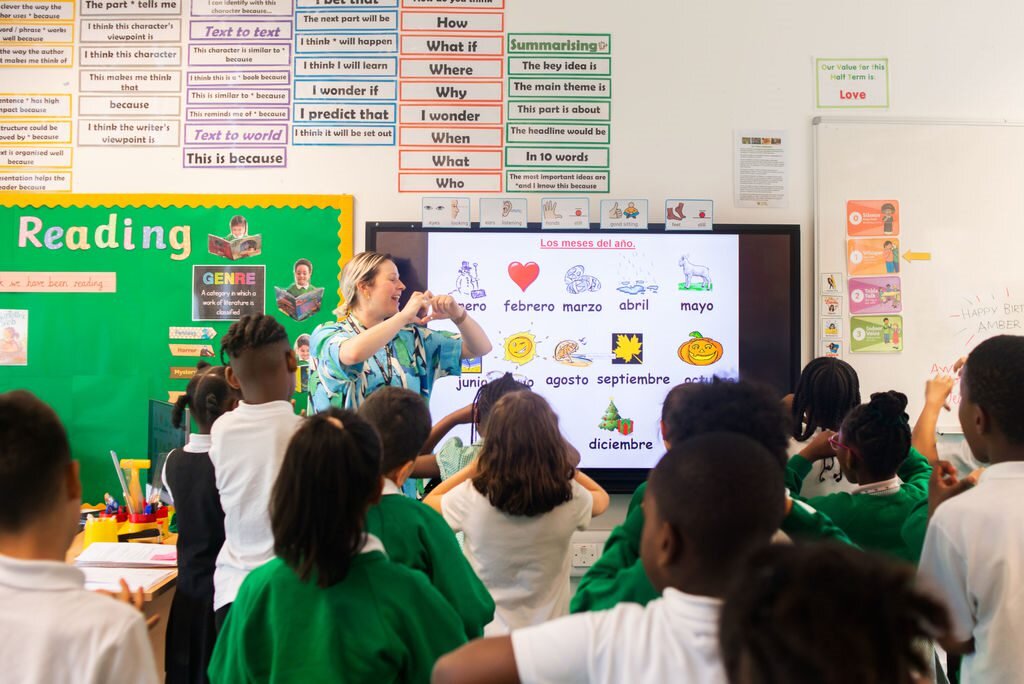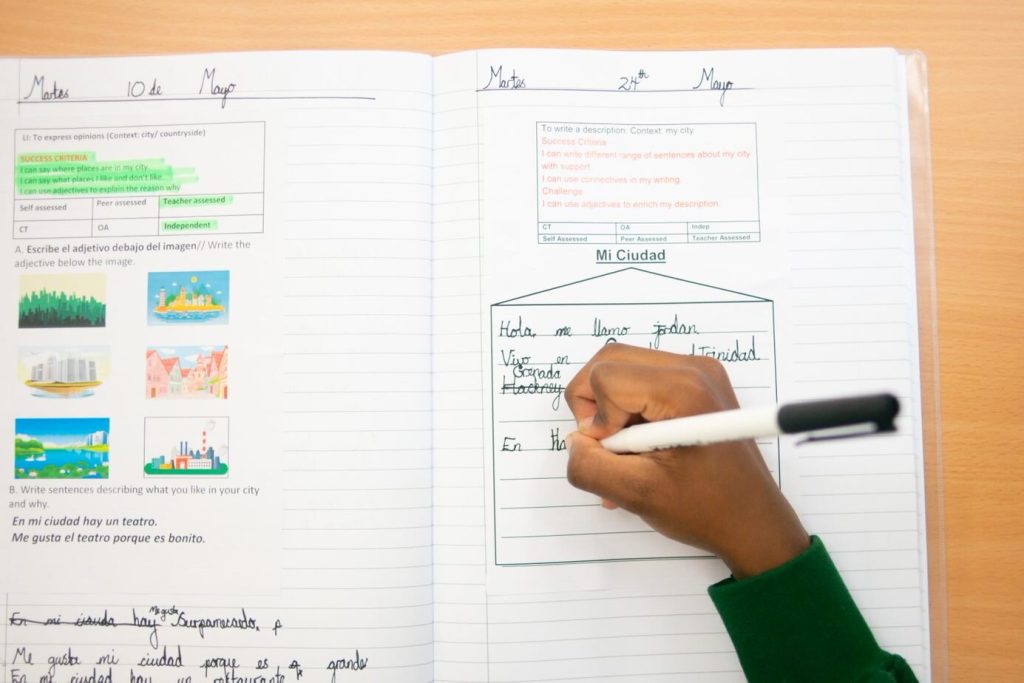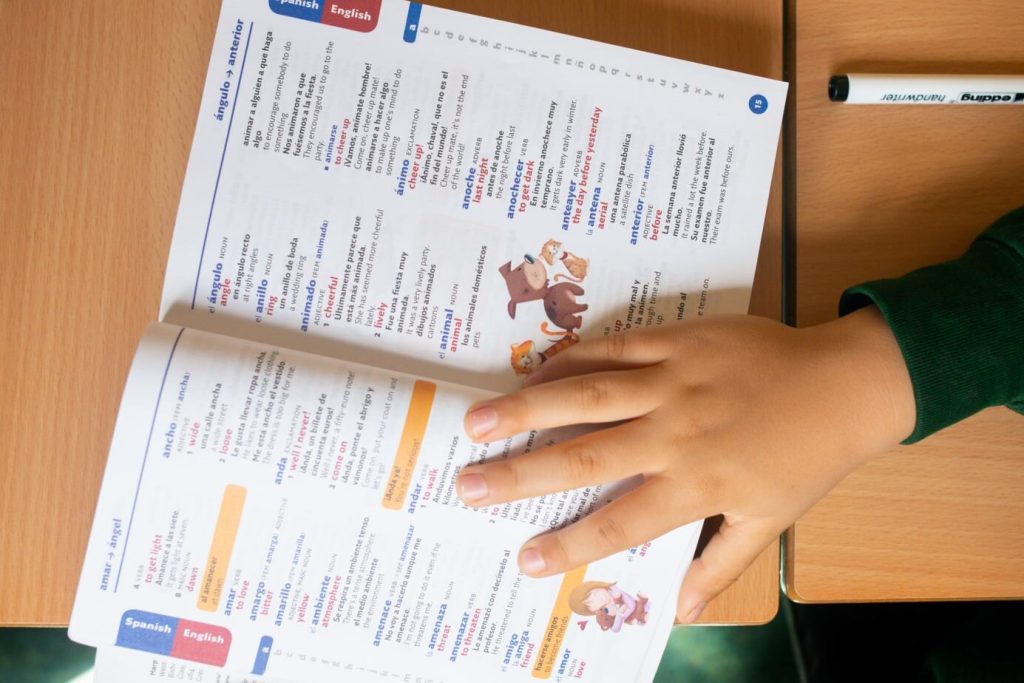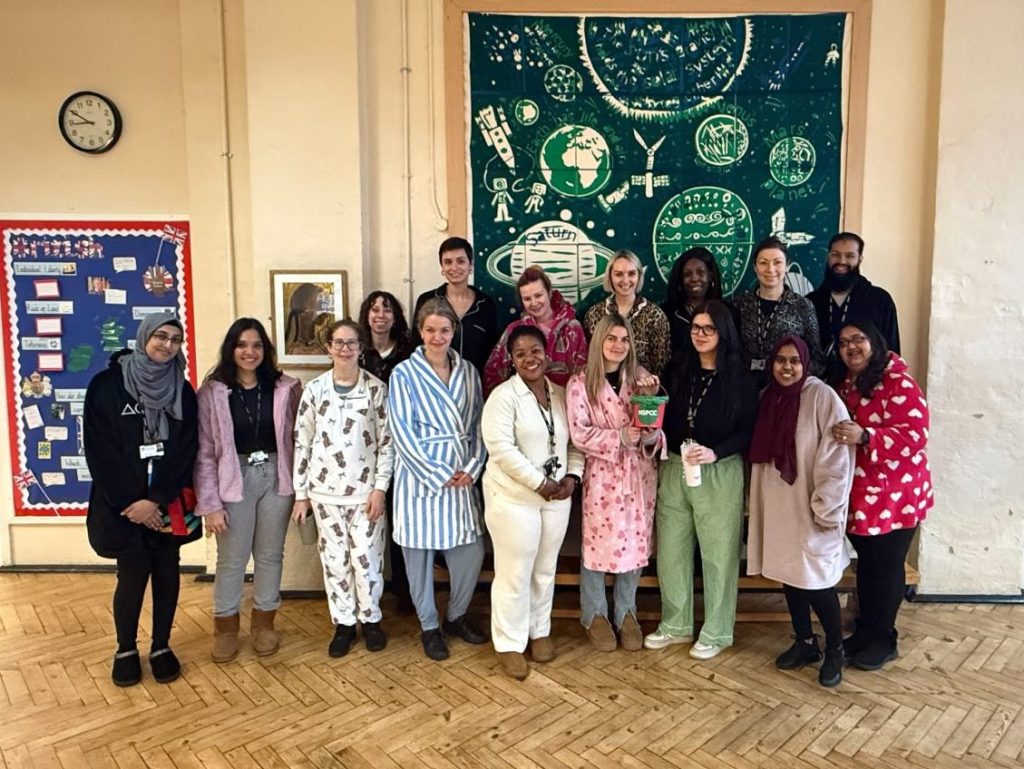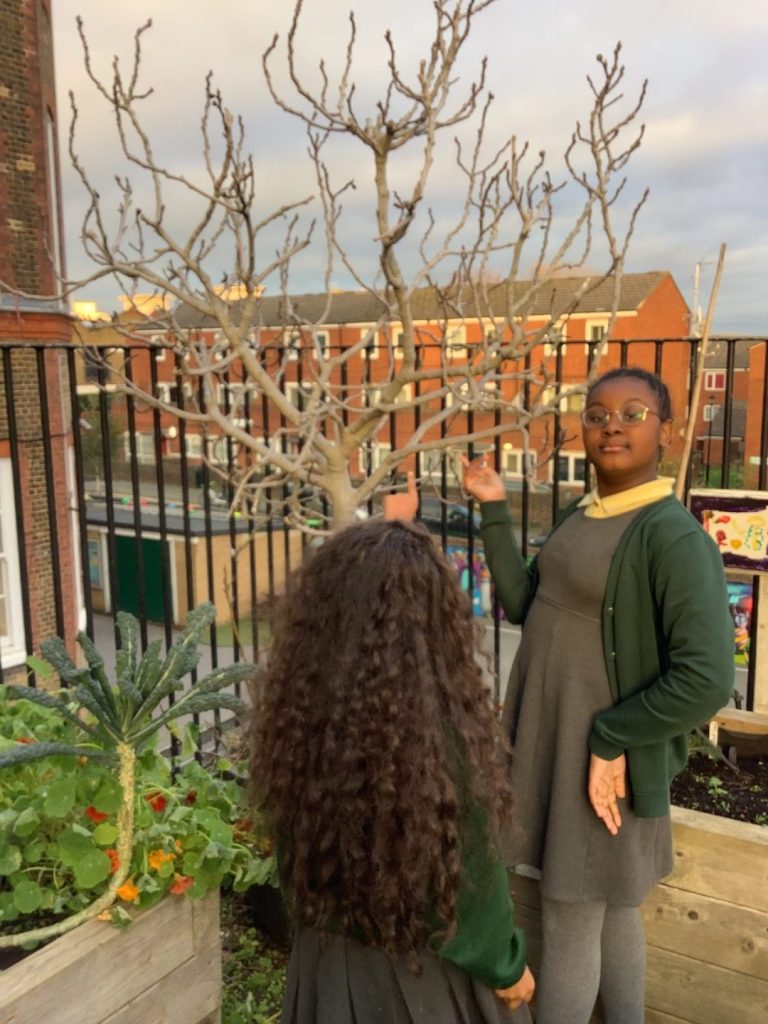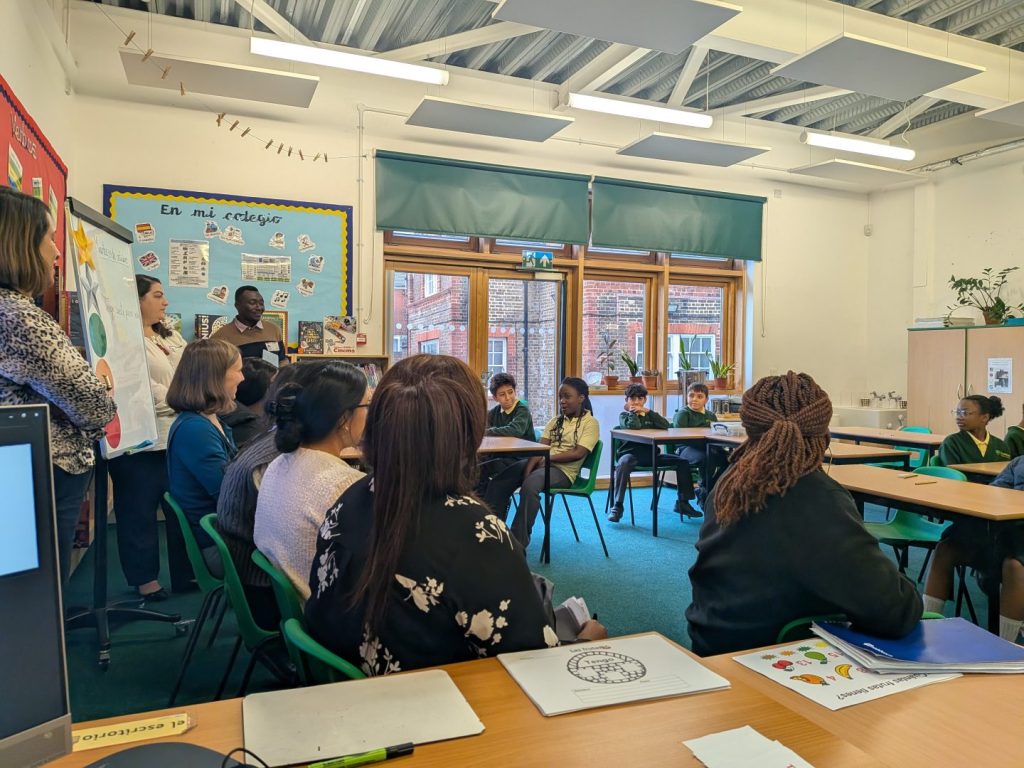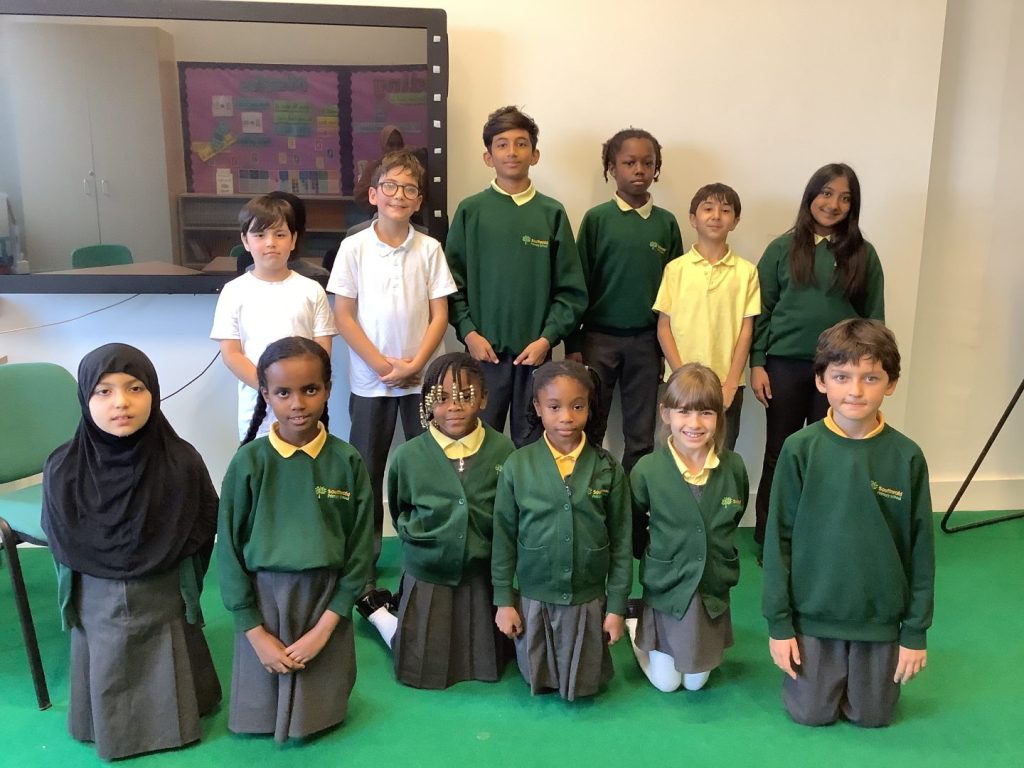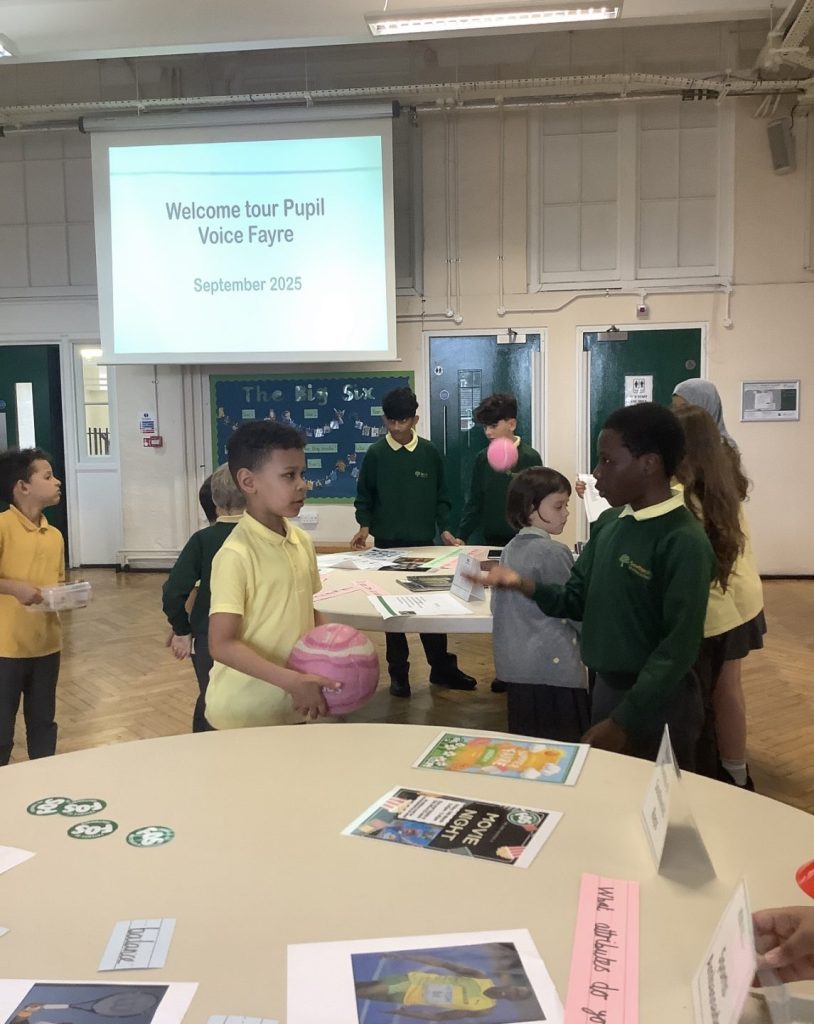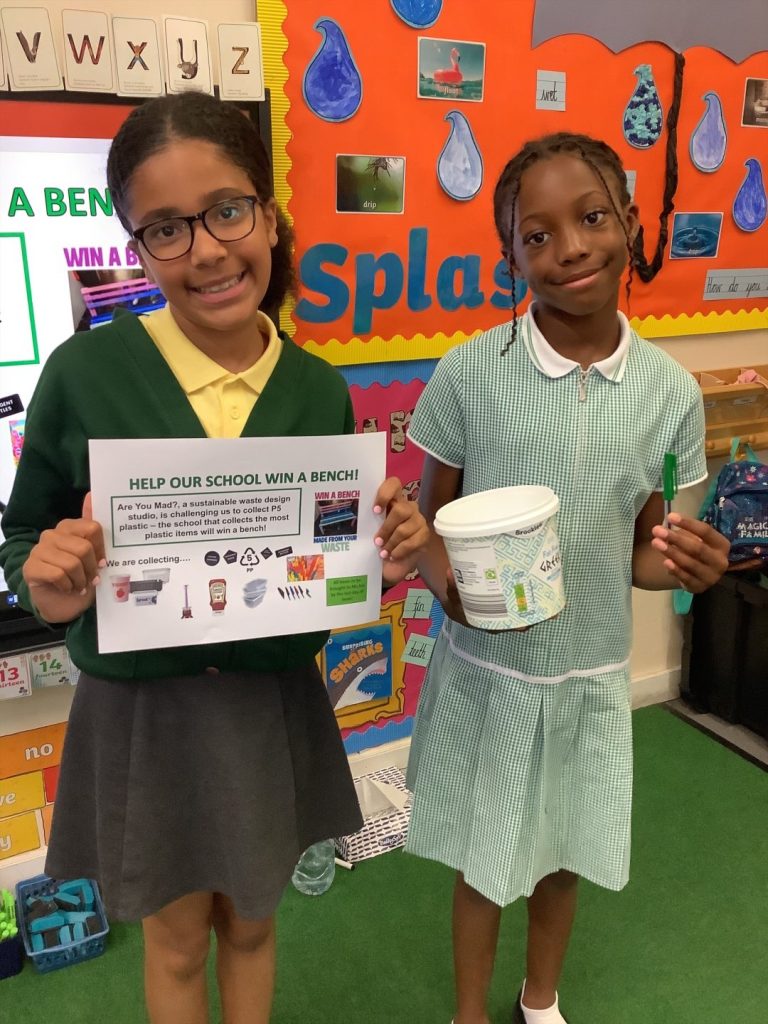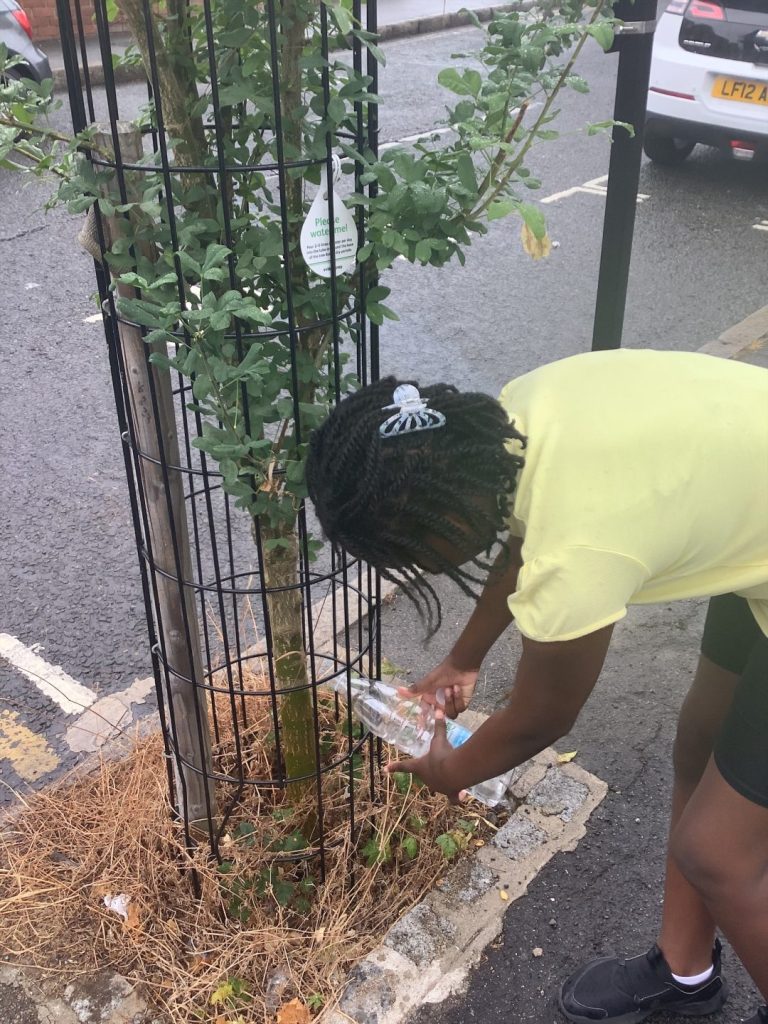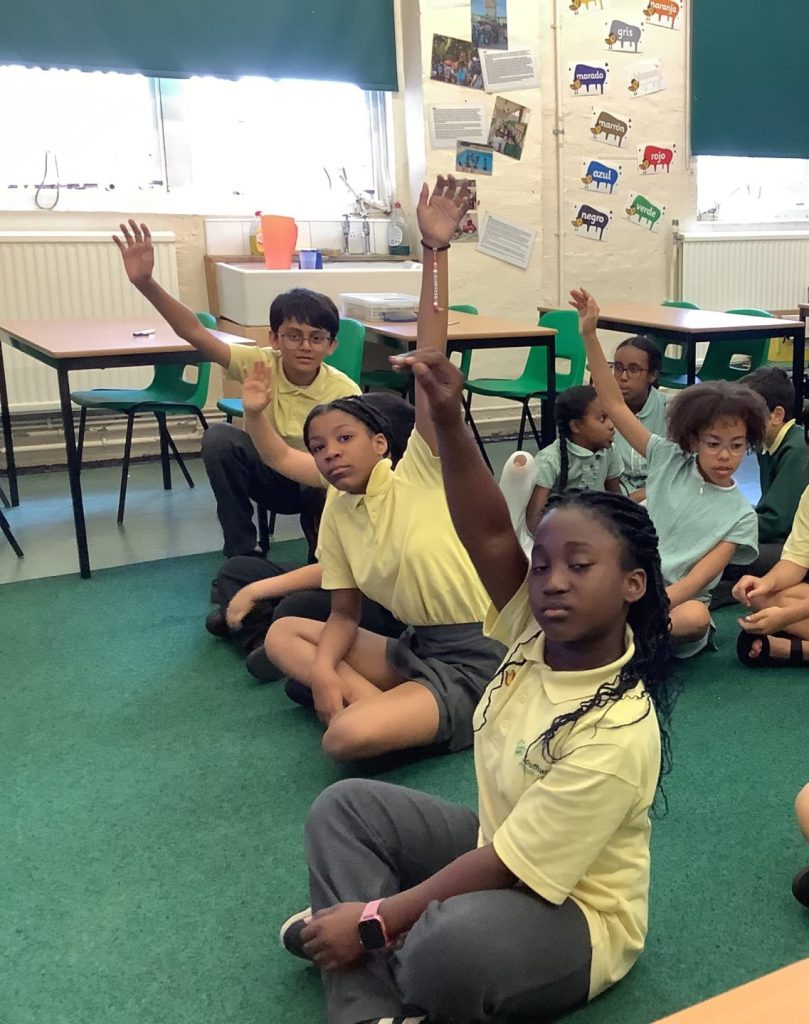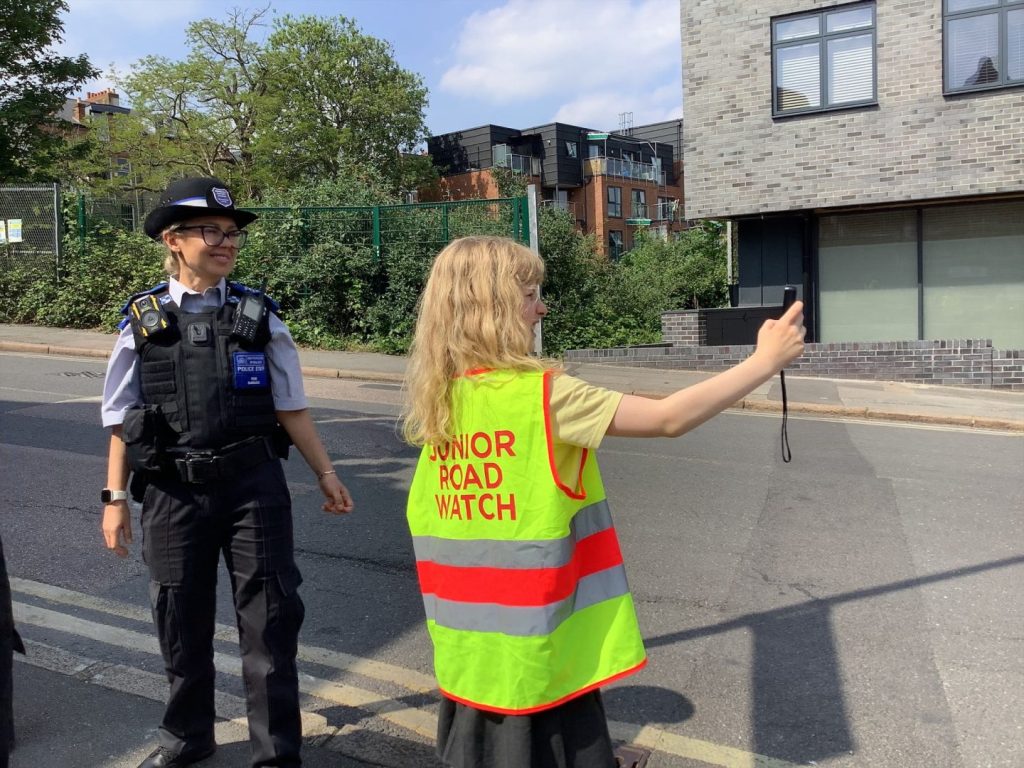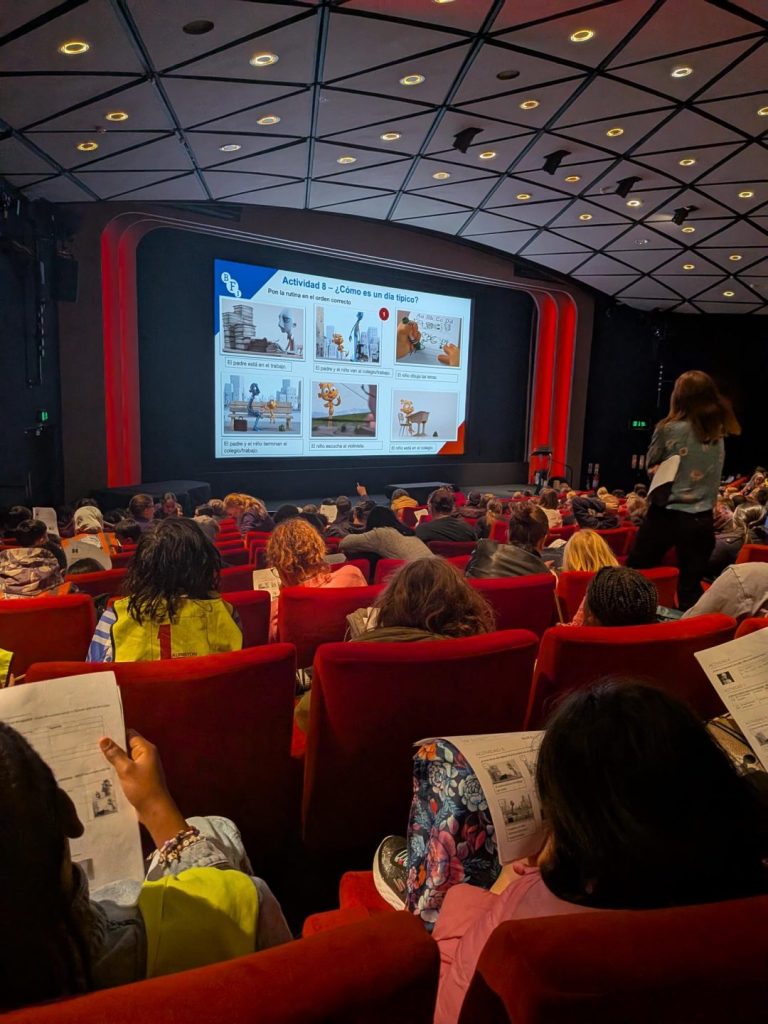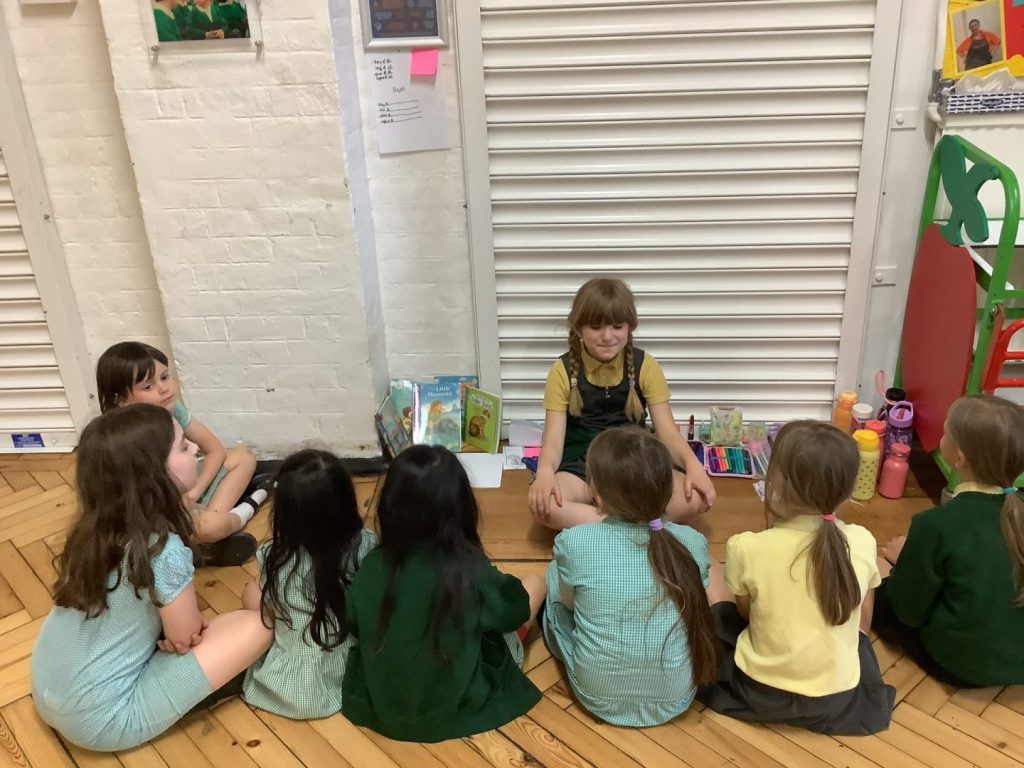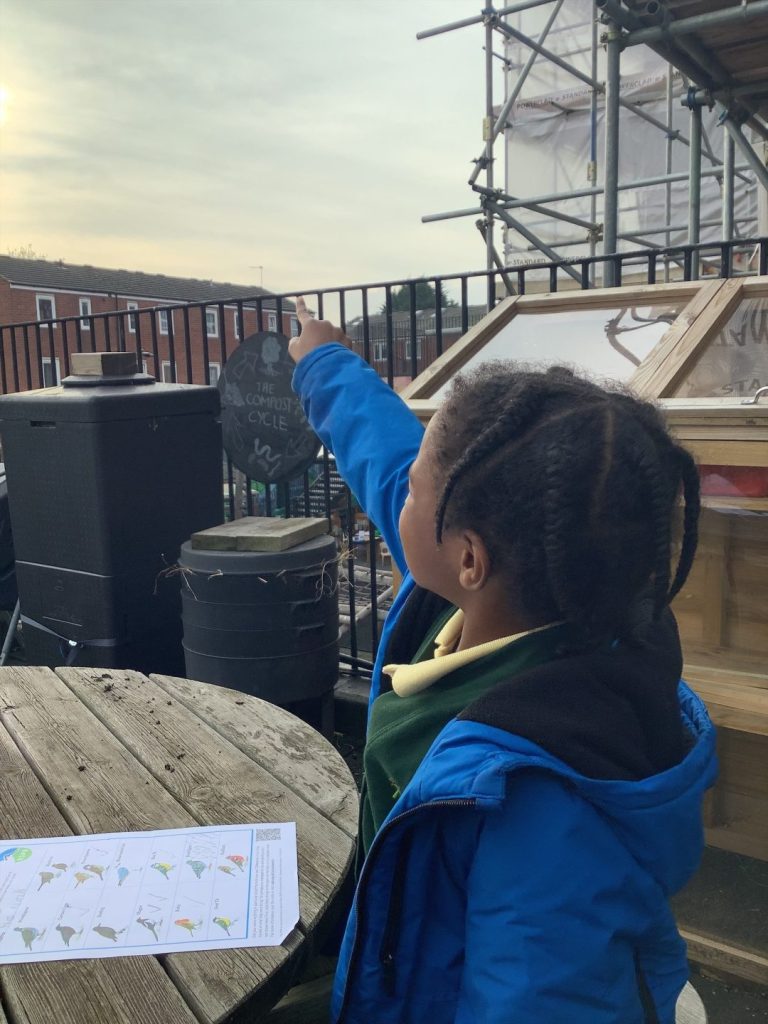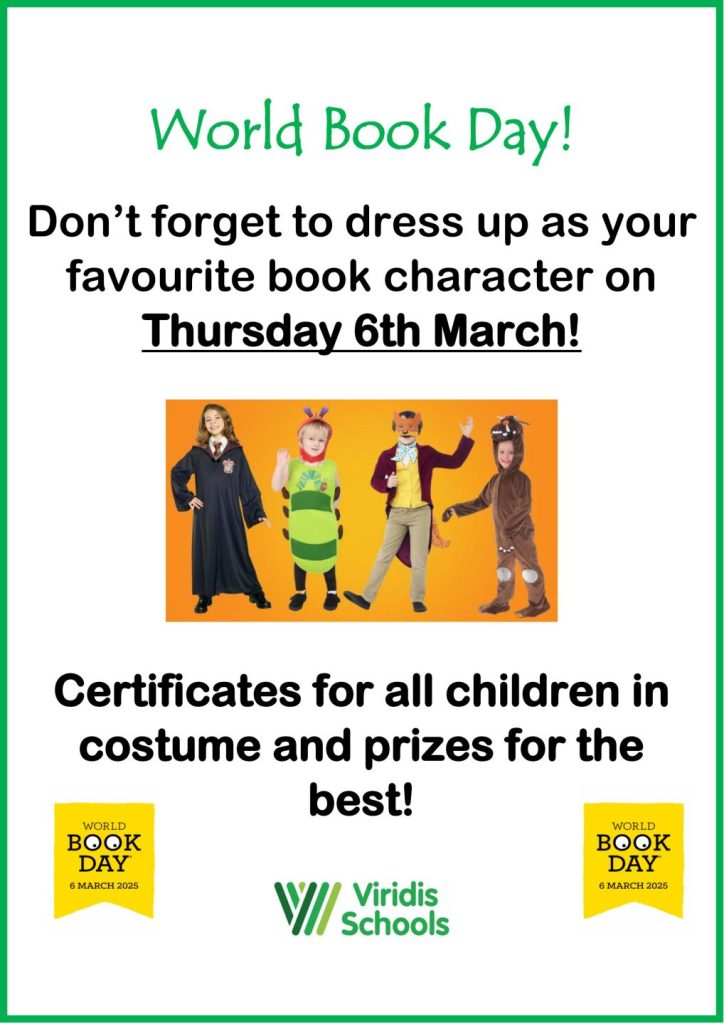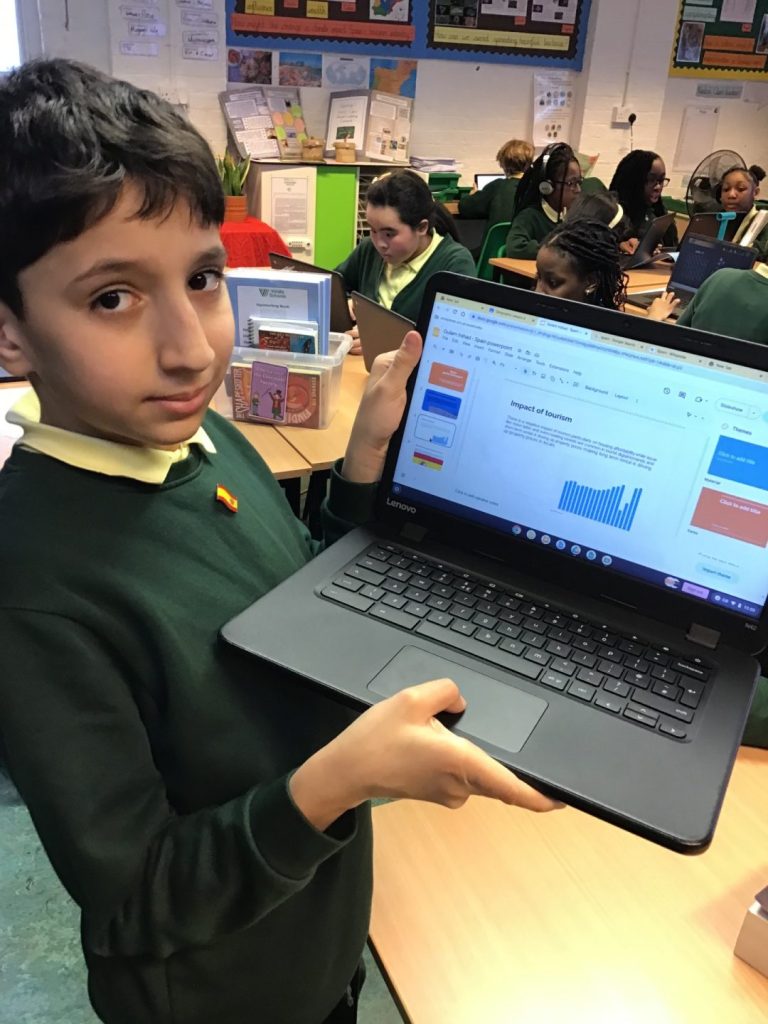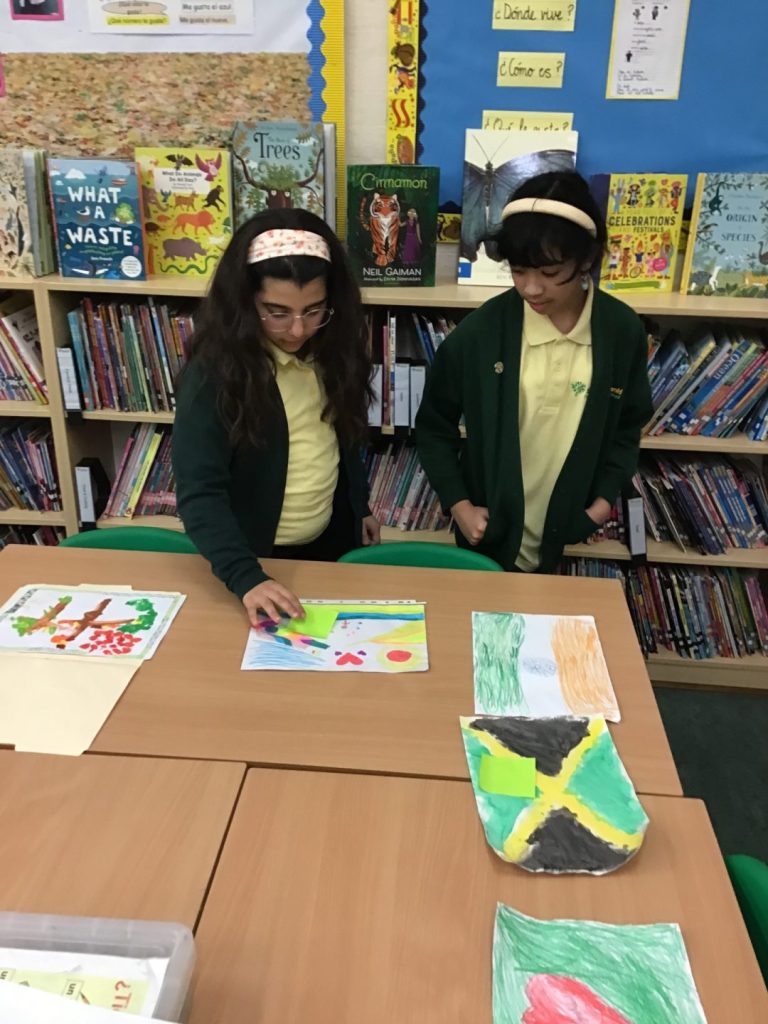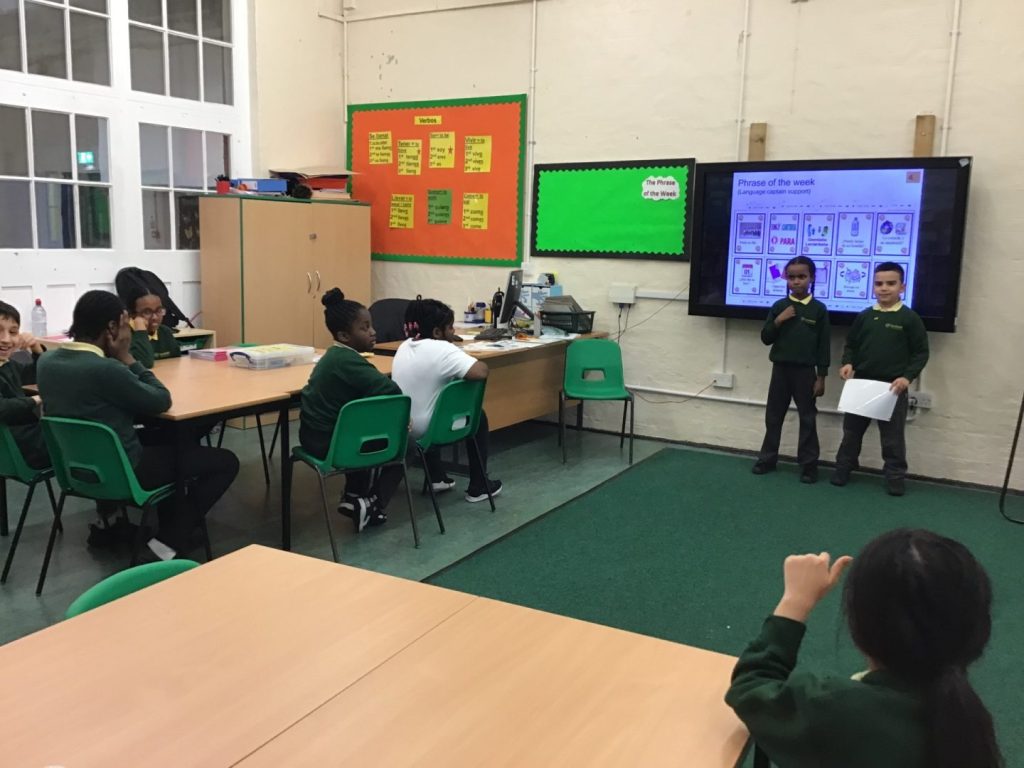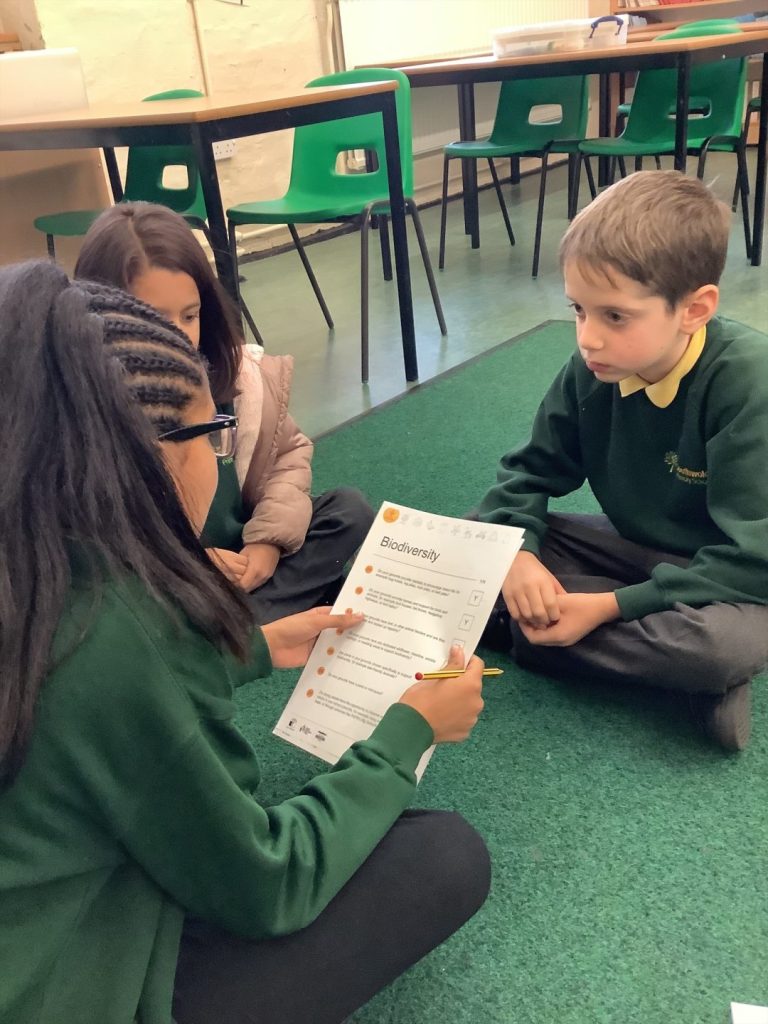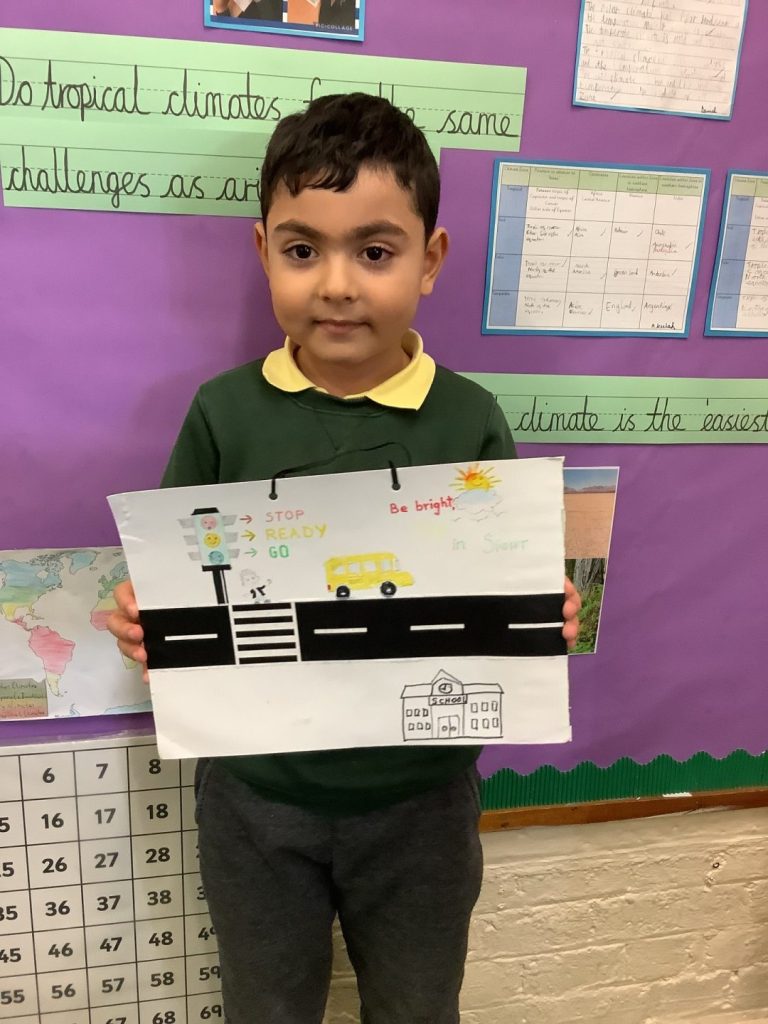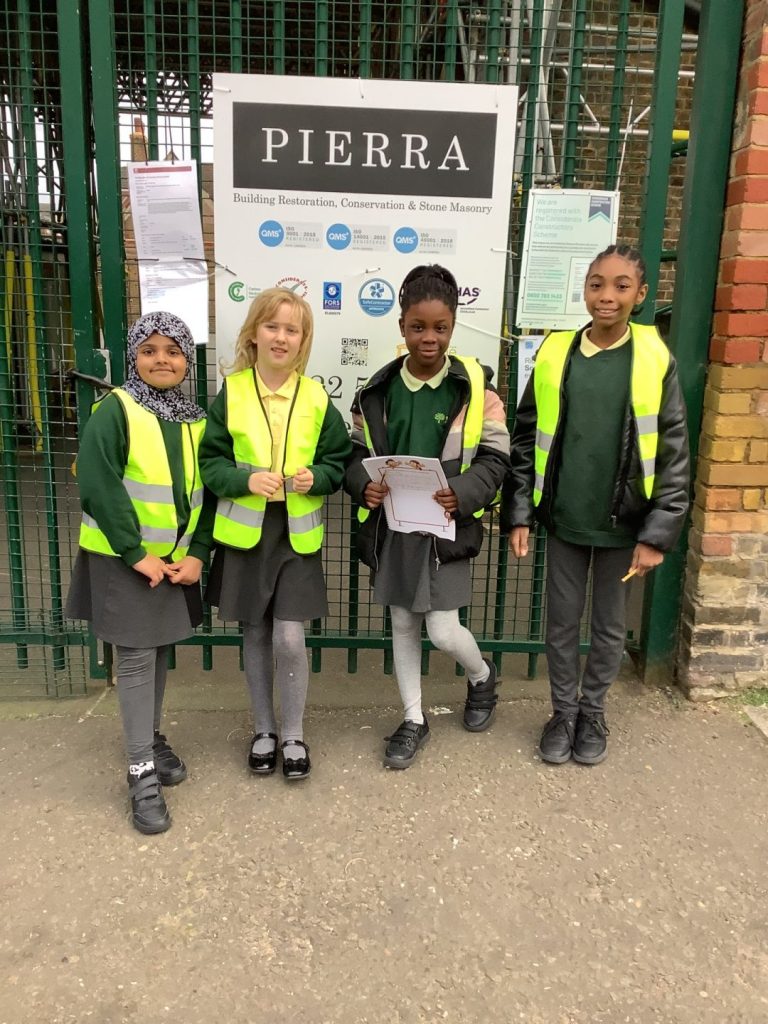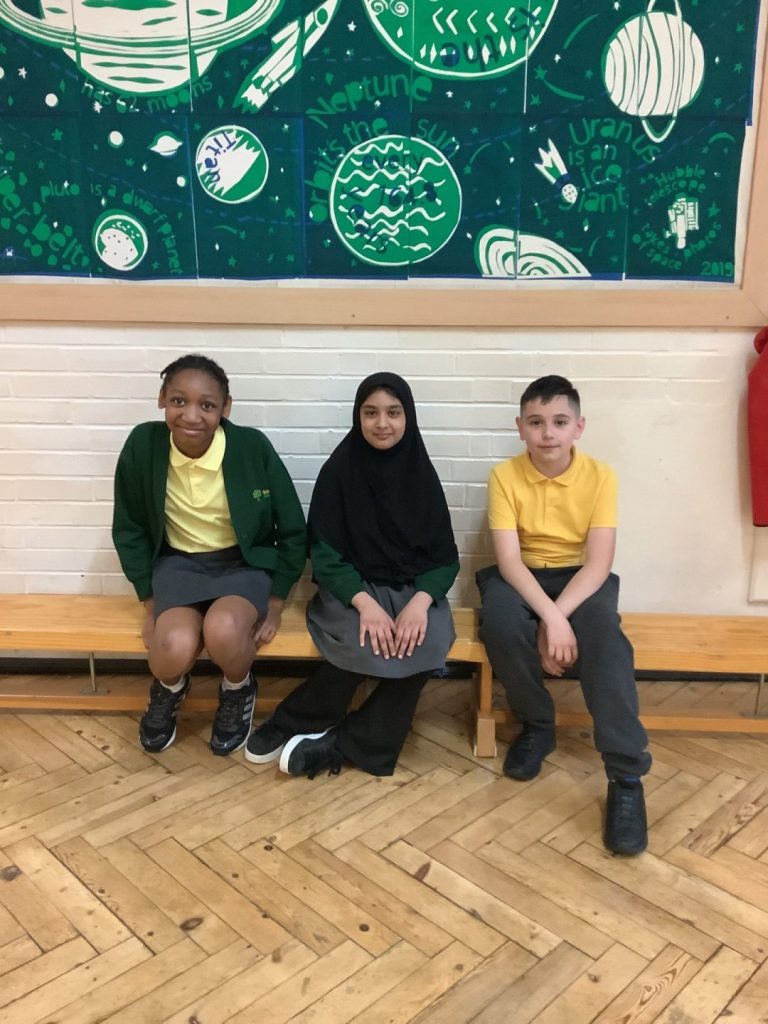Our Spanish curriculum is designed to cover all of the knowledge and understanding as set out in the National Curriculum for KS2. To ensure that children develop a secure knowledge that they can build on across primary school and beyond, our Spanish curriculum is organised into a progression model that outlines the knowledge, skills and vocabulary to be taught in a sequentially coherent way from Year 3 to Year 6 with school designed pre learning taught in EYFS and KS1. Learning progression help children recall and build on previous knowledge throughout their primary school language learning journey.
The four key language learning skills; listening, speaking, reading and writing are taught. A progressive coverage of grammatical skills enable the direct ability to manipulate language over time. This enables children to use and apply their learning in a variety of contexts, laying down solid foundations for future language learning.
We provide rich and varied learning experiences to enable children to develop their skill and knowledge in language application over time. Learning a second language offers all children the opportunity to explore relationships between language and identity, develop a deeper understanding of other cultures and the world around them with a better awareness of self, others and cultural differences.
Core Elements of Spanish Teaching
- Almost exclusive use of Spanish during lessons.
- High quality instruction and questioning with teachers providing carefully planned sequenced lessons that build on prior knowledge.
- Carefully chosen and planned lessons and activities that are scaffold and adapted to ensure all children meet the intent of the Spanish curriculum.
- Retrieval of previous learning and explicit links to the teaching of vocabulary.
- Language games, stories and rhymes to enhance motivation, contextualise learning and heighten enjoyment.
- A focus on grammatical structures and phonology with opportunities in each lesson for children to use and practise what they have learned through group and pair work.
- Use of authentic materials and ICT where relevant and appropriate, for example commercially produced software, teacher produced resources and internet research.
Curriculum
In EYFS and Key Stage 1, children develop their speaking and listening skills through practical activities, conversational work, singing activities and games to help improve memory and recall.
In Key Stage 2, children progressively acquire, use and apply a growing bank of vocabulary, language skills and grammatical knowledge organised around age-appropriate topics and themes, building blocks of language into more complex, fluent and authentic dialogue. Words are learnt in a multi-layered way through image, sound, action and repetition. This approach strengthens memory, making the knowledge secure enough for easy retrieval and more importantly, for application of new words in context. Regular practise in applying the knowledge to the pronunciation of new words with the same sound-written relationship is regularly undertaken. Children develop their vocabulary and expression and learn grammatical rules e.g. placement of adjectives and recognising words that are spelt differently depending on the gender of the noun.
Cultural Capital
Varied learning experiences, including ‘Hispanic Day’ ensure that languages are celebrated throughout the school community whilst providing a context for language learning and develop the children’s understanding of different cultures.
Cross-curricular learning experiences provide a variety of opportunities to practise and explore the same skills and understanding in different subject areas, this includes a weekly phrase of the week. Engagement in the Erasmus project over time has ensured secure links with Spanish speaking schools in mainland Spain and the Canary Islands, including hosting and undertaking visits and collaborative project work.
Innovative approaches to MFL have also enabled the achievement of the British Council’s ‘International School Award’ and the Hackney ‘Premio Espana Primaria’ Award at Gold Level. Achievement of both awards meant external moderation of the school’s evidence base. The school was judged to have demonstrated the achievement of each standard and met the criteria for best practice in accordance with both frameworks, both of which relate directly to the teaching and learning of Modern Foreign Languages.
Click here for further Erasmus+ news.
Accessibility for all children
Our expectation is that the majority of children will move through the programmes of study at broadly the same pace through supporting children with additional inputs, interventions, peer support and resources.
The ambitious and inclusive nature of the curriculum allows a range of access points that ensure all children, including those with special educational needs, succeed, regardless of their circumstances, with high expectations set for everyone.
For more information on our approach to teaching Spanish, please look at our coffee morning timetable for the next available session or make an appointment in the school office to speak with our Spanish subject leader.
MFL Gallery
